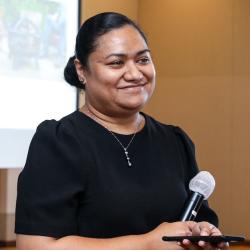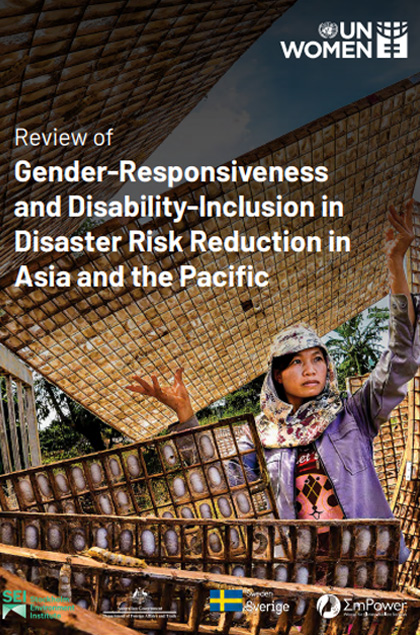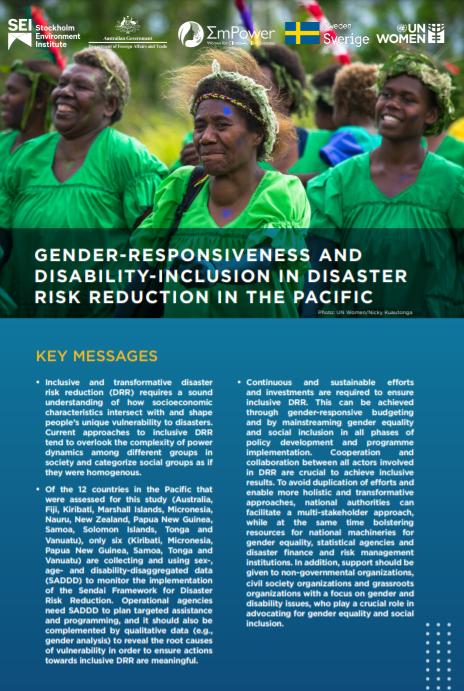Empowering resilience: WRD and partners forge inclusive disaster risk reduction strategies in the pacific
Civil society partners, women’s organizations and organizations for people with disabilities came together for a Talanoa Session on Gender, Disability and Social Inclusion in Disaster Risk Reduction, affirming resilience building that leaves no one behind.

In the face of an increasingly volatile climate, the need for disaster risk reduction strategies that prioritize inclusivity is more pressing than ever. Civil society partners, women’s organizations and organizations for people with disabilities came together for a Talanoa Session on Gender, Disability and Social Inclusion in Disaster Risk Reduction on 17 October, affirming resilience building that leaves no one behind.
The event was organized by the UN Women Fiji Multi-Country Office (MCO) through the Women’s Resilience to Disasters Programme in partnership with the Pacific Disability Forum (PDF) and the United Nations Office for Disaster Risk Reduction (UNDRR). In welcoming the participants, UN Women Fiji MCO Representative Delphine Serumaga remarked that the Talanoa session was an opportunity to discuss ways “to improve or work better together to bring about the results that will ensure our collective efforts and contribute to building a more resilient and inclusive Pacific community”.
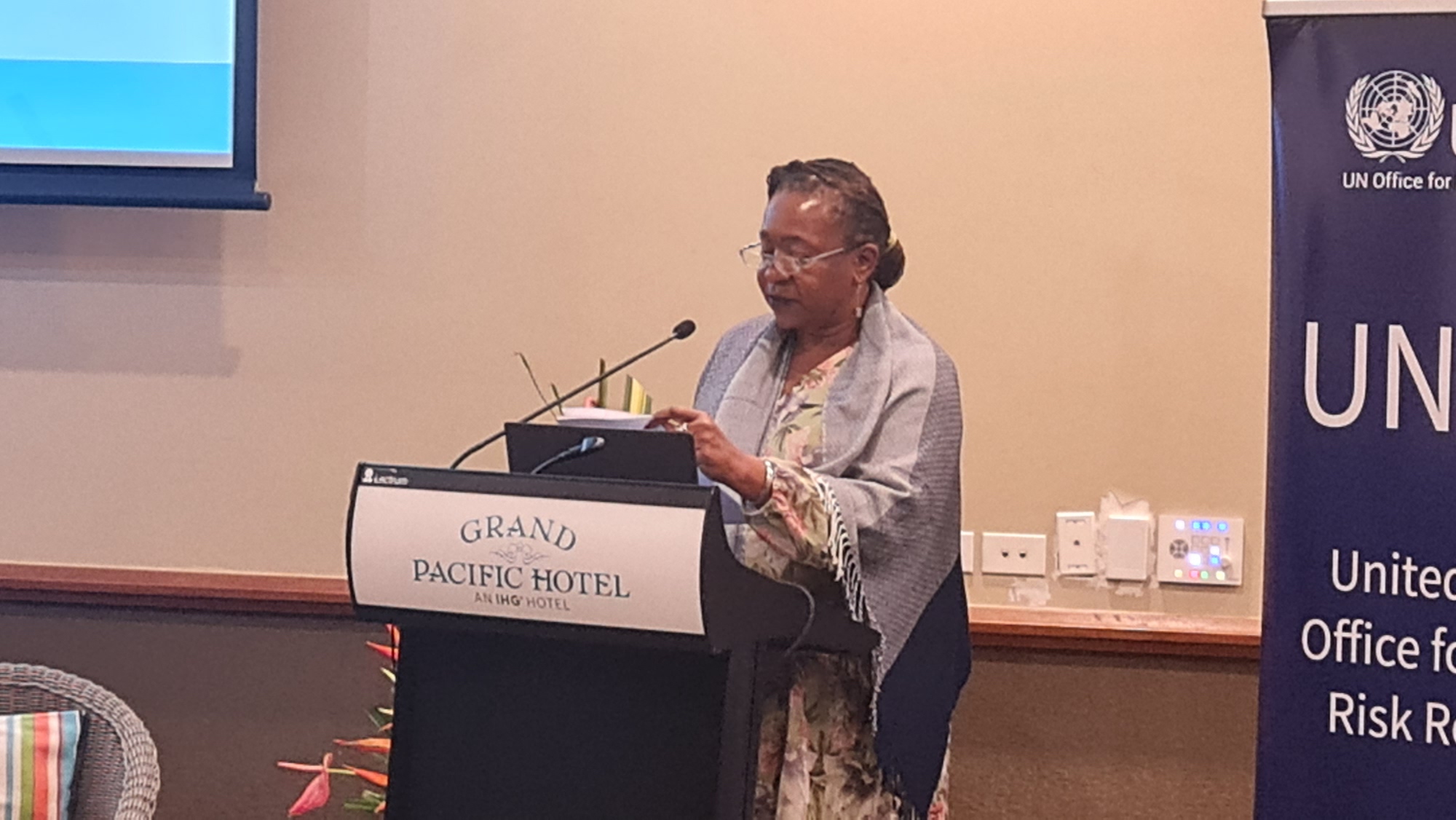
The event coincided with Fiji’s National Disaster Awareness Week and the official visit of the Special Representative of the United Nations Secretary-General (SRSG) for Disaster Risk Reduction, and Head of UNDRR, Mami Mizutori. Speaking at the event, SRSG Mizutori highlighted the progress in implementation of the Sendai Framework following its Midterm Review and UNDRR’s efforts in partnership with UN Women and United Nations Population Fund (UNFPA) to develop a Gender Action Plan for the Sendai Framework. She also acknowledged that the results of the 2023 Global Survey on Persons with Disabilities and Disasters indicated the need for governments and disaster risk reduction stakeholders to accelerate implementation of the commitments on disability inclusion and building resilience for all.
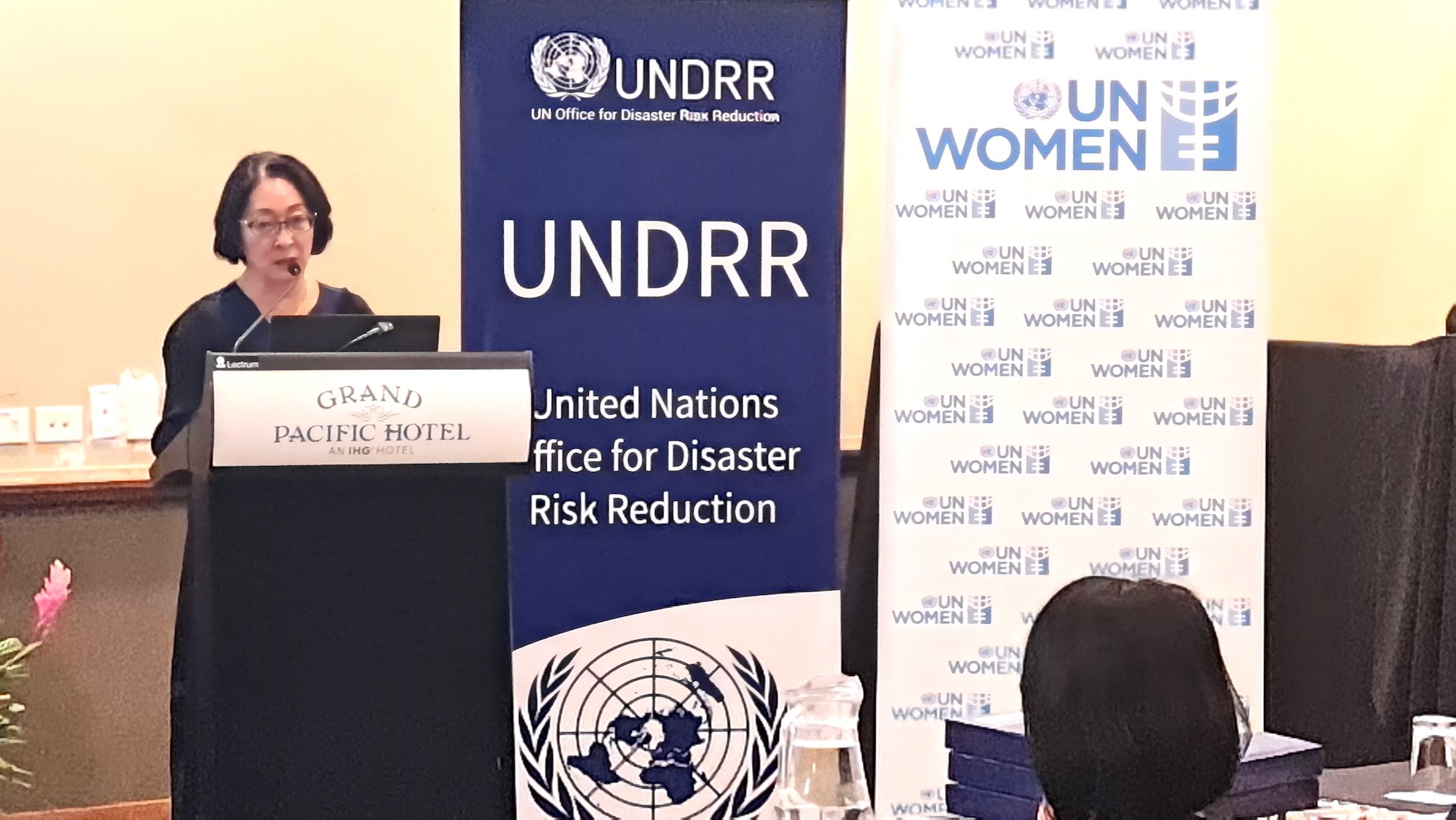
Other speakers at the Talanoa from the PDF, FemLink Pacific and ADRA Fiji shared their stories and experiences in working with communities to increase understanding and empathy for the unique challenges faced by women and people with disabilities and the need to include their voices in decision-making in community preparedness, response and recovery planning and implementation.
Ruci Senikula from the PDF spoke on the importance of building the capacity of national organizations of people with disabilities to influence policy and resourcing at the national and regional levels while Naomi Navoce called for a proactive approach to ensuring women with disabilities were involved in developing solutions to increase accessibility to information and services. Fay Volatabu shared the unique work of FemLink Pacific in ensuring early warning messages and risk information are reaching women in remote and rural communities and the need to document traditional knowledge and practices, and Christine Lemau from ADRA emphasized the need to understand the cultural context, traditional structures and language barriers in the communities to be able to effectively engage women and people with disabilities in resilience building initiatives.
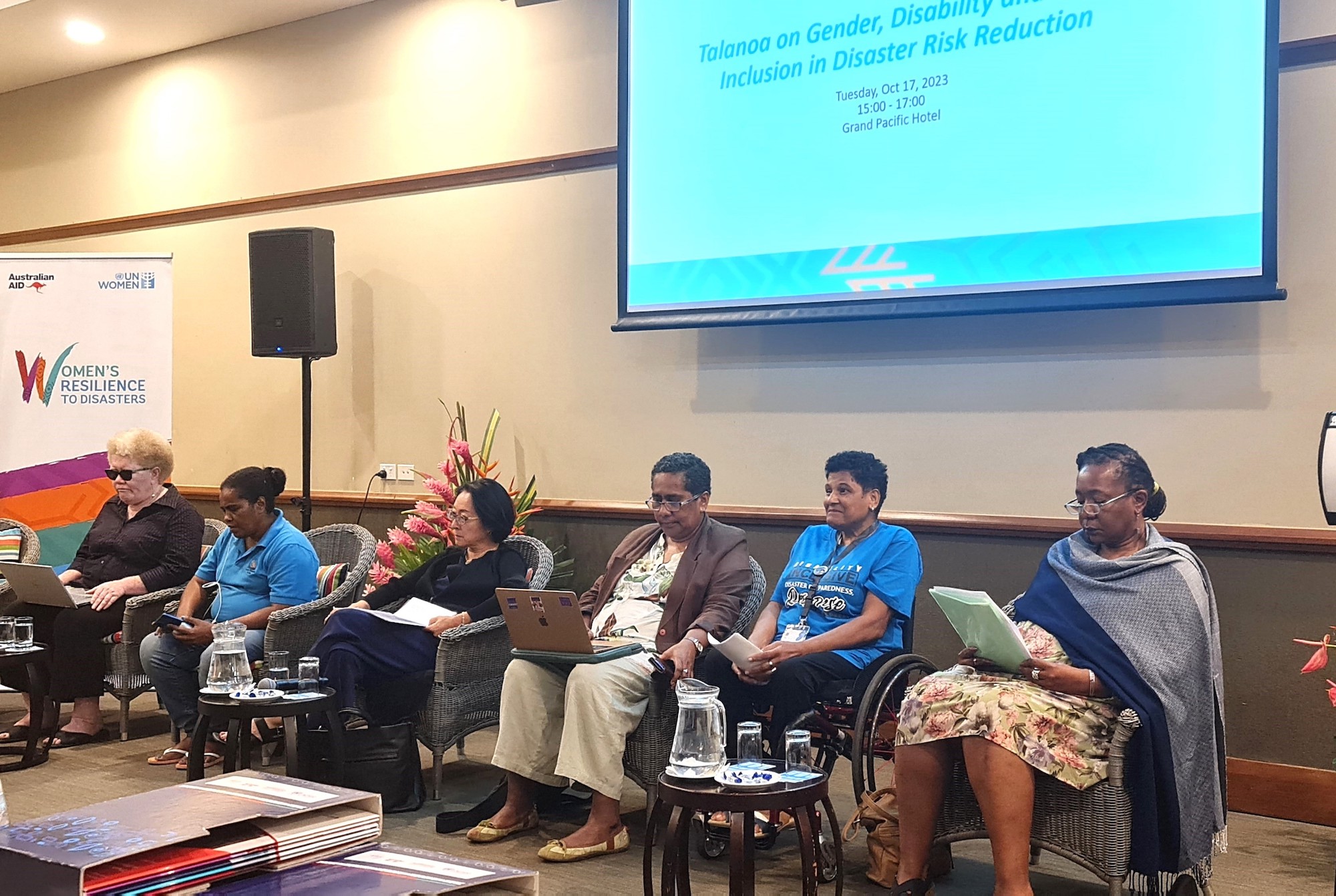
The Talanoa session acknowledged the collective work of civil society organizations in fostering greater awareness and education on the challenges and opportunities for advancing gender, disability and social inclusion in disaster risk reduction. Participants recognized the critical role of partnerships and sharing of resources, knowledge, and best practices. The Talanoa concluded with a clear message that inclusivity is the key to building stronger, more inclusive, and more resilient communities that require sustained engagement by all stakeholders from government, civil society, and the community.
